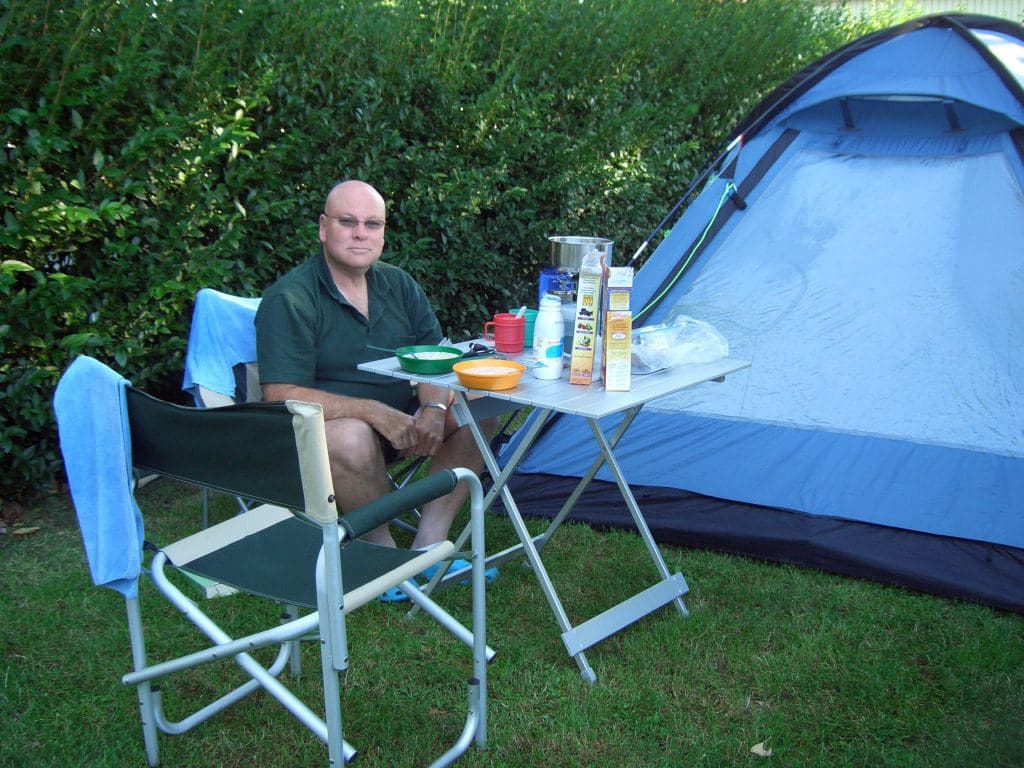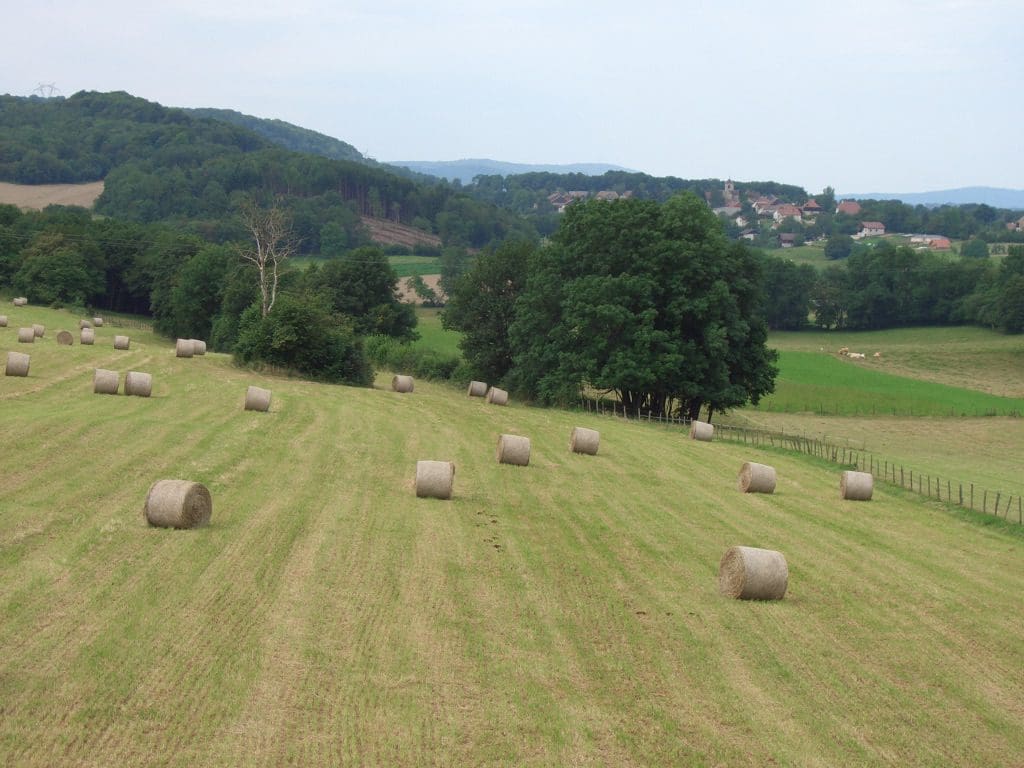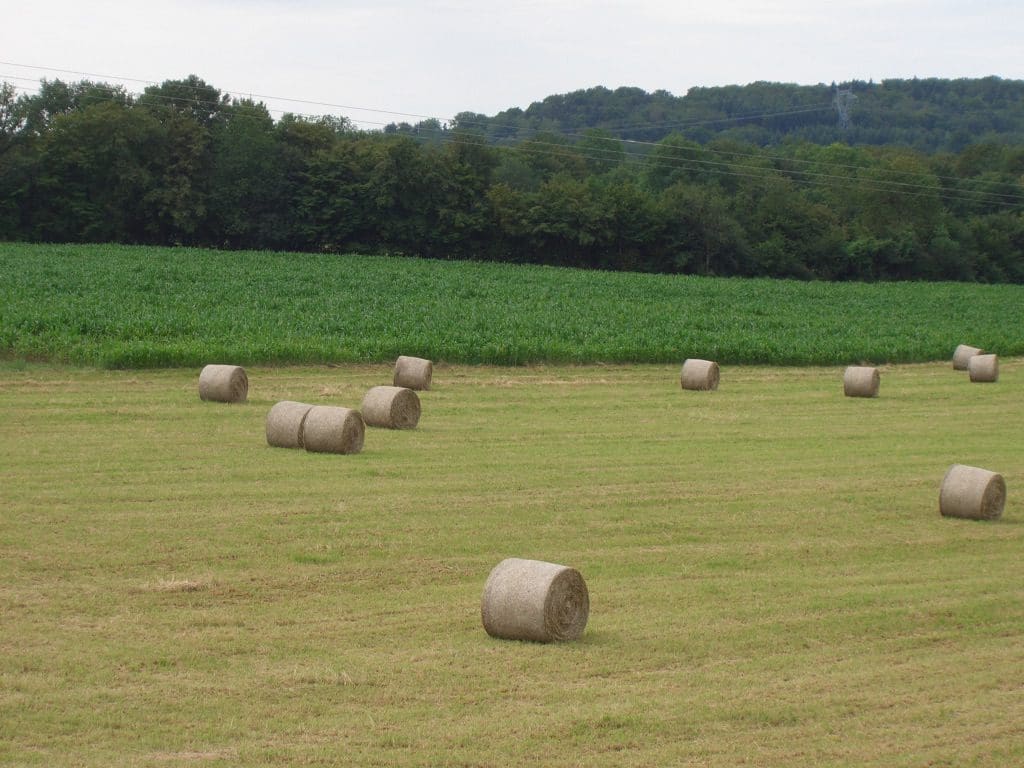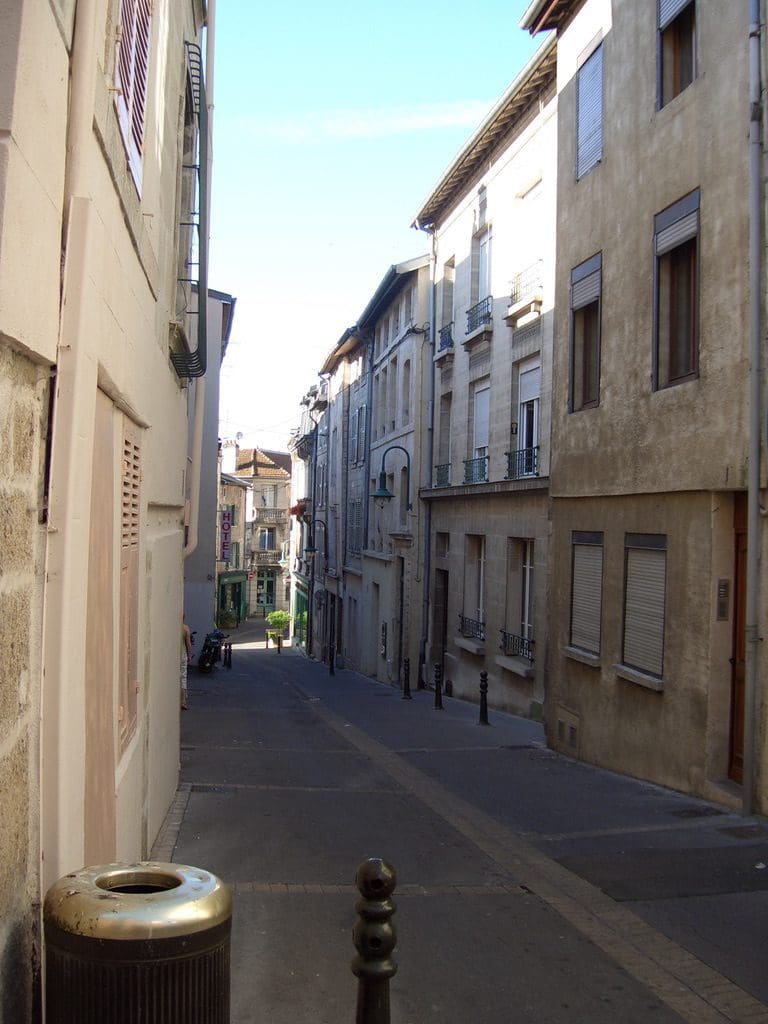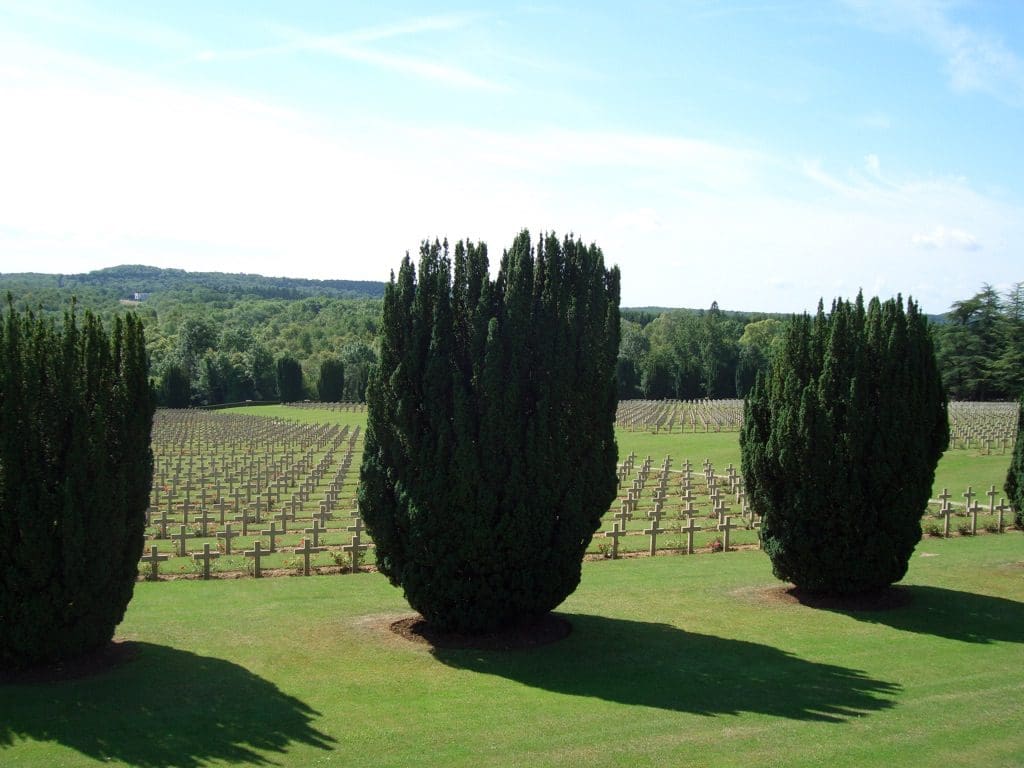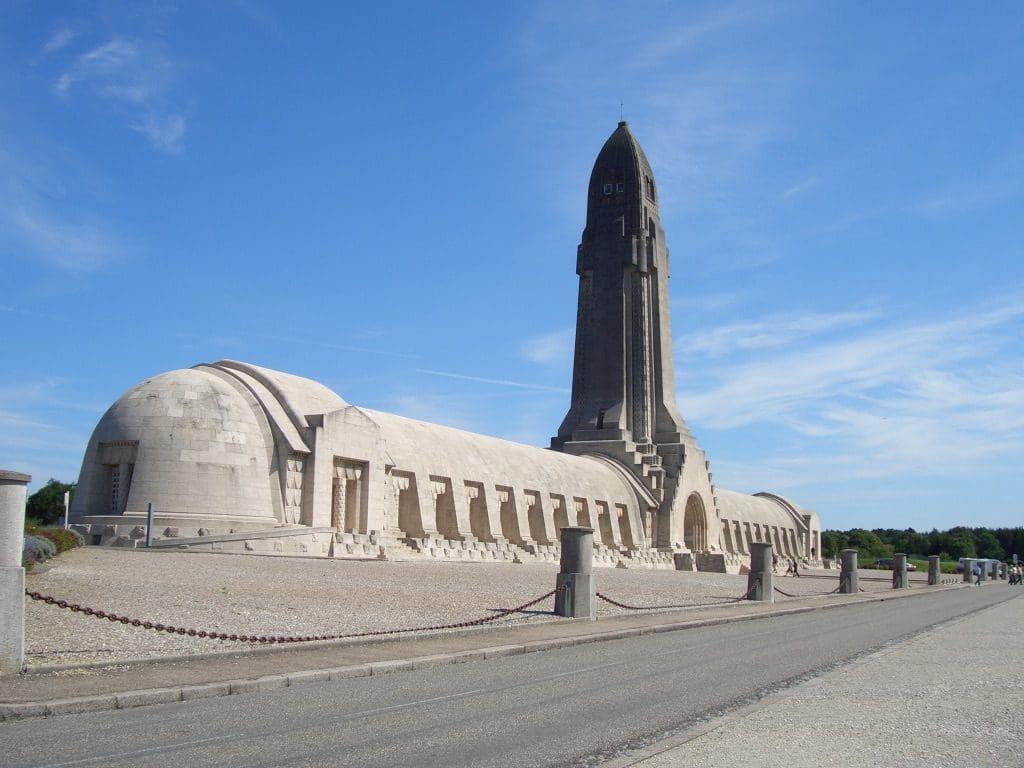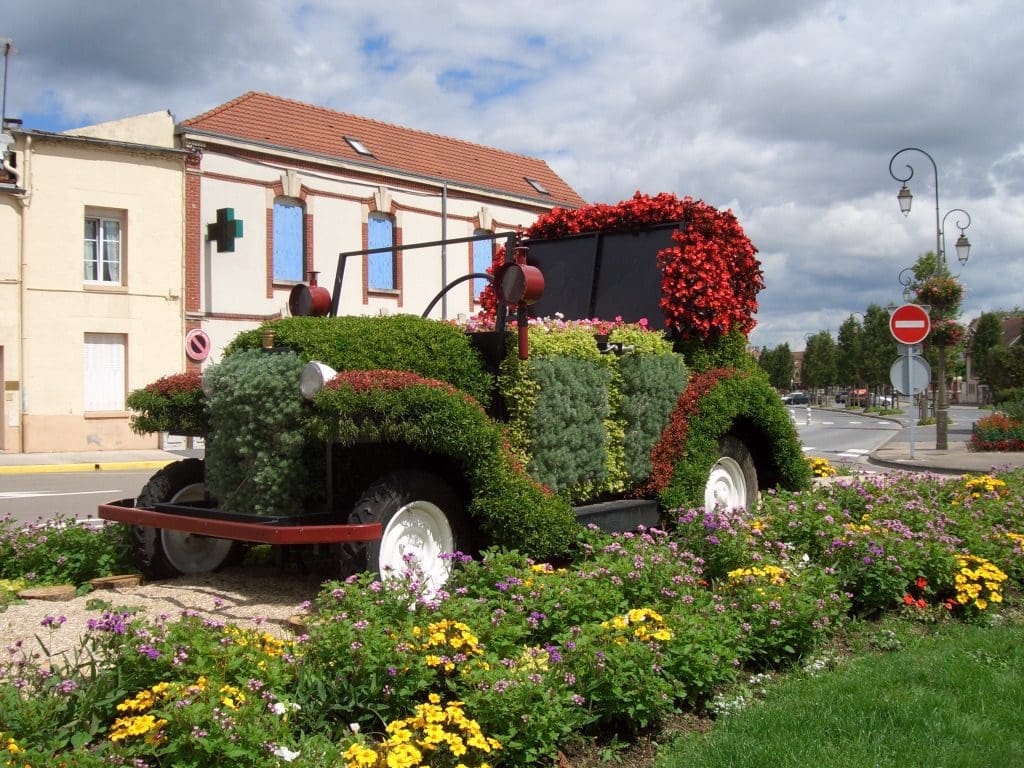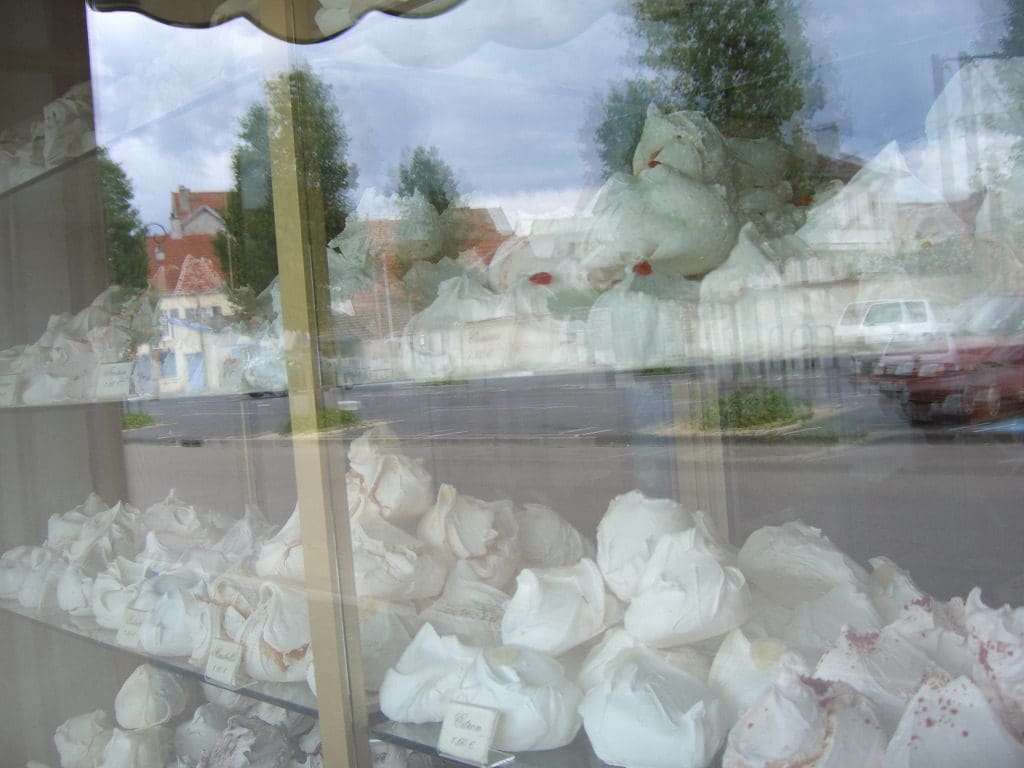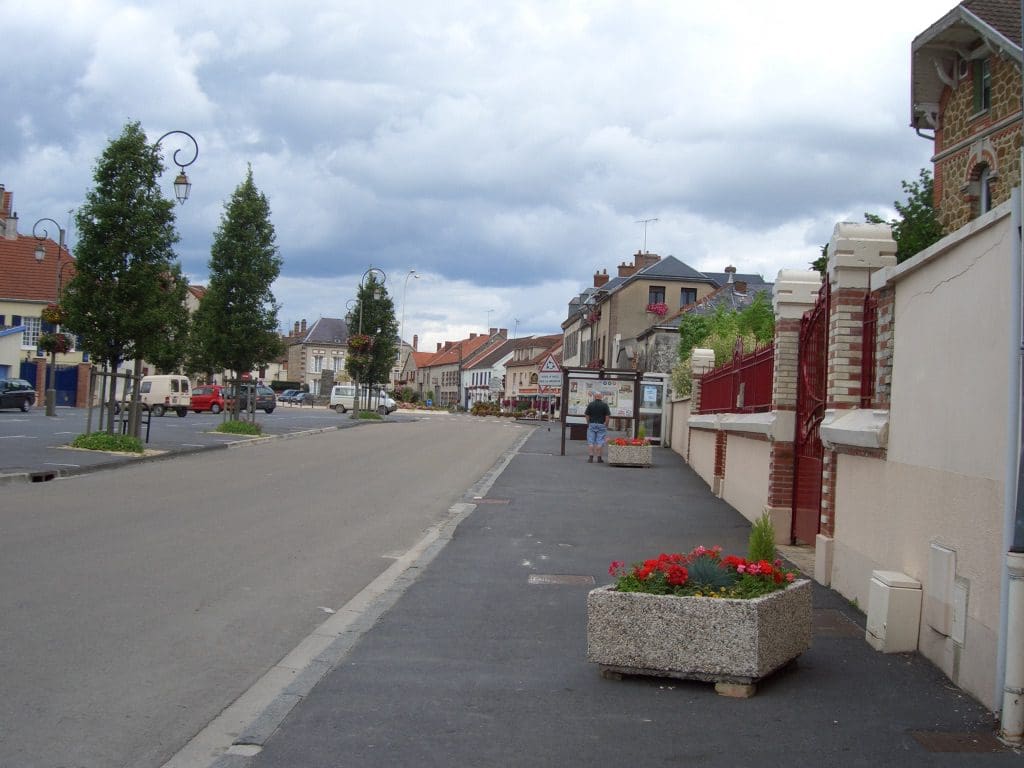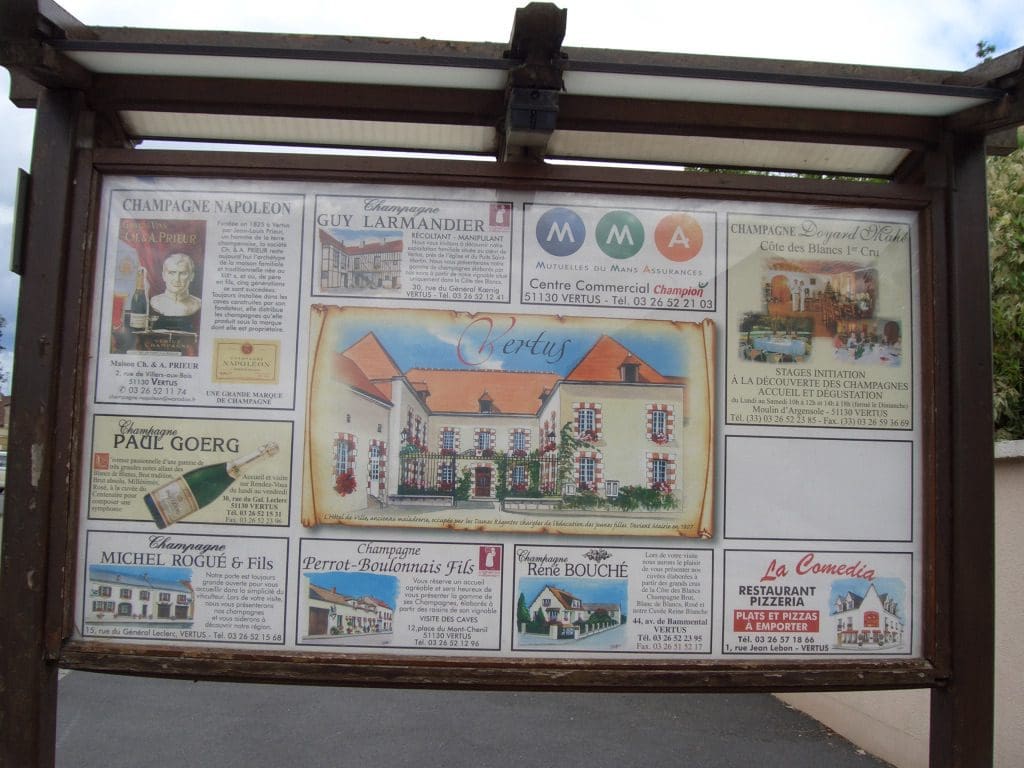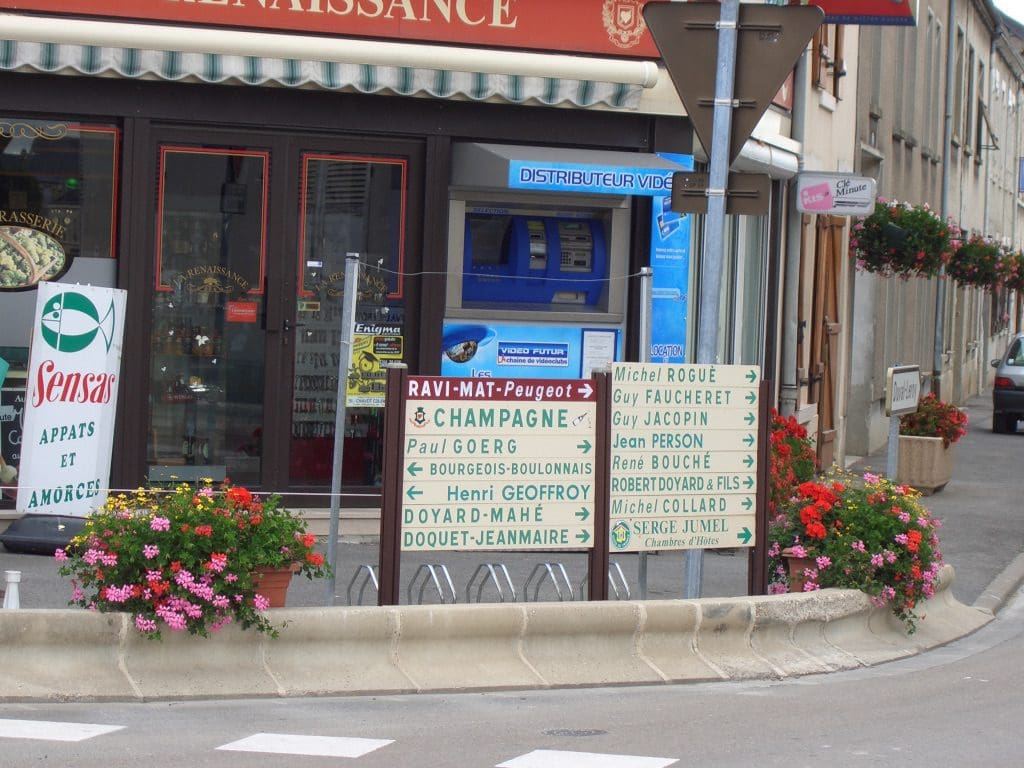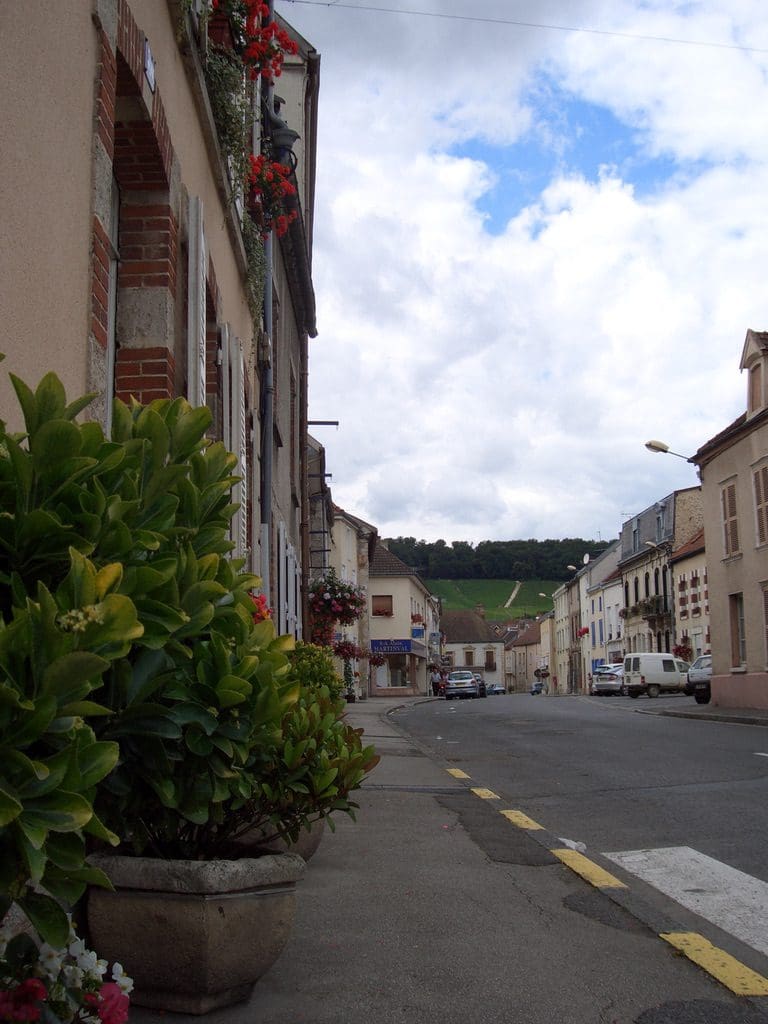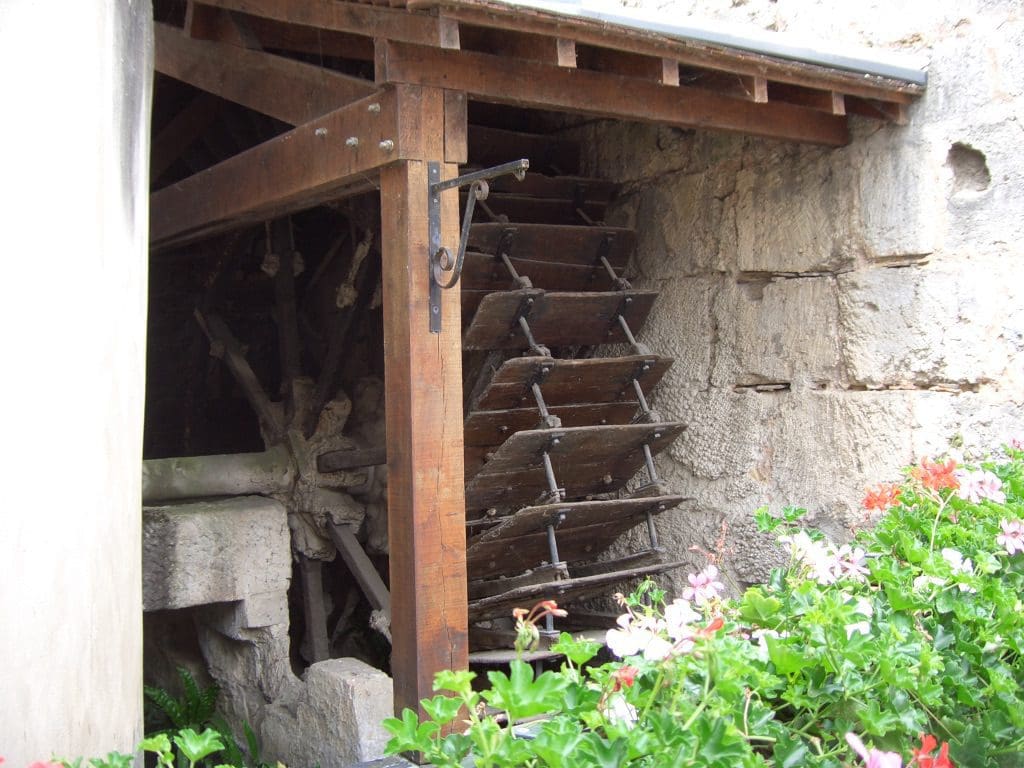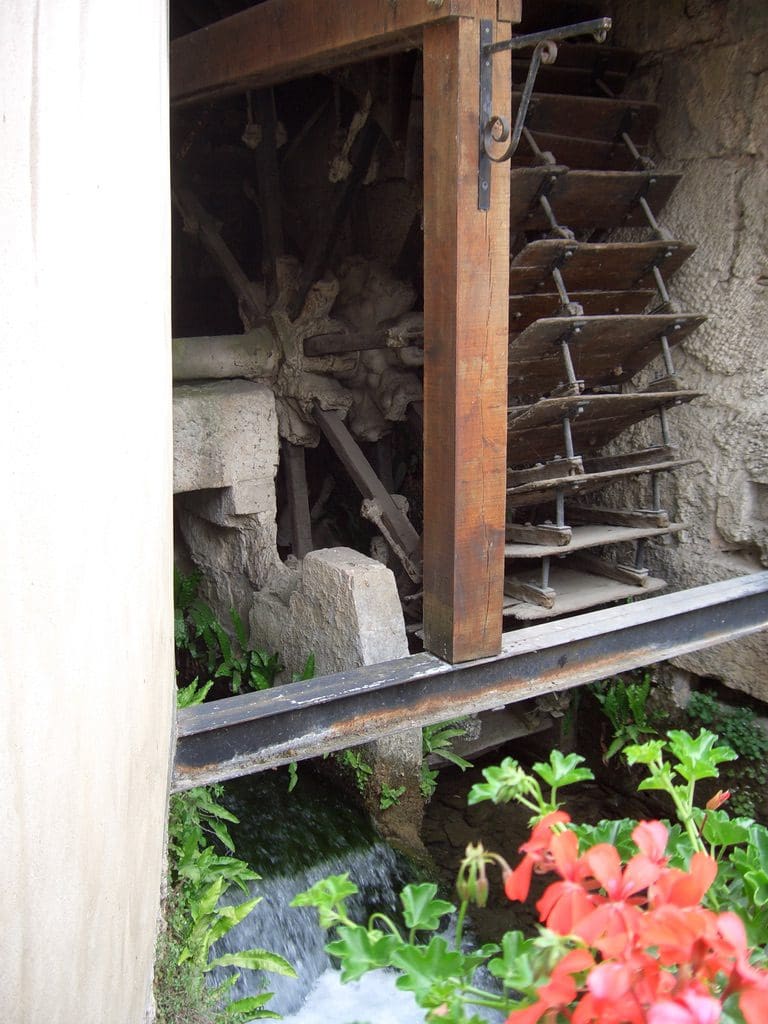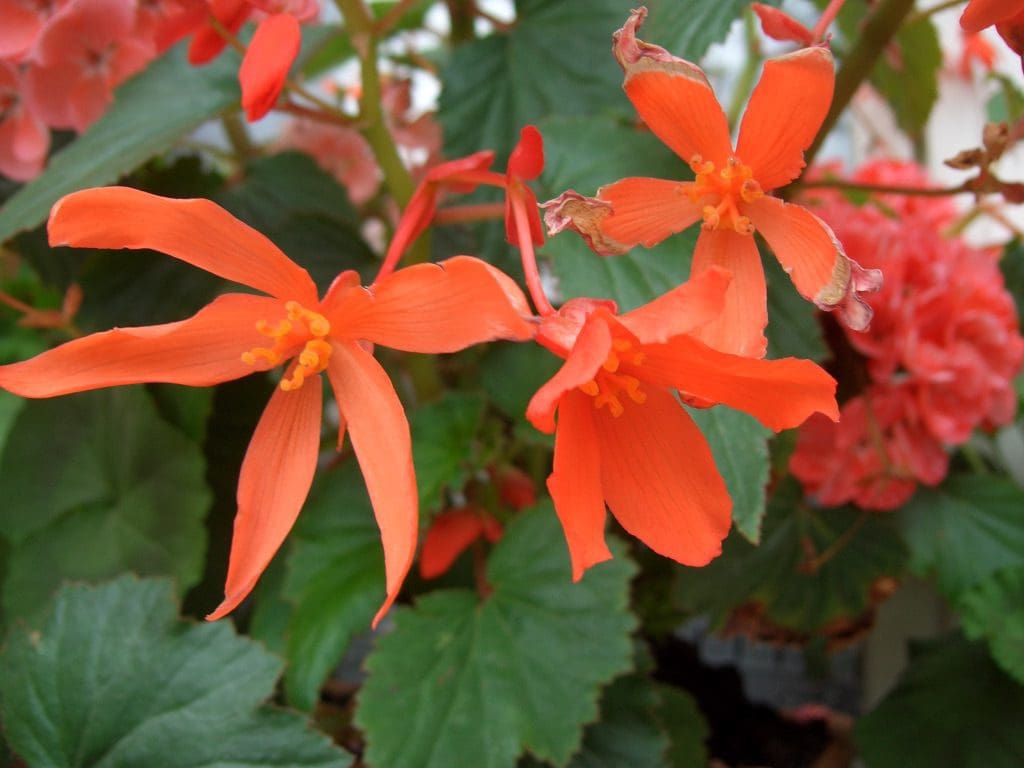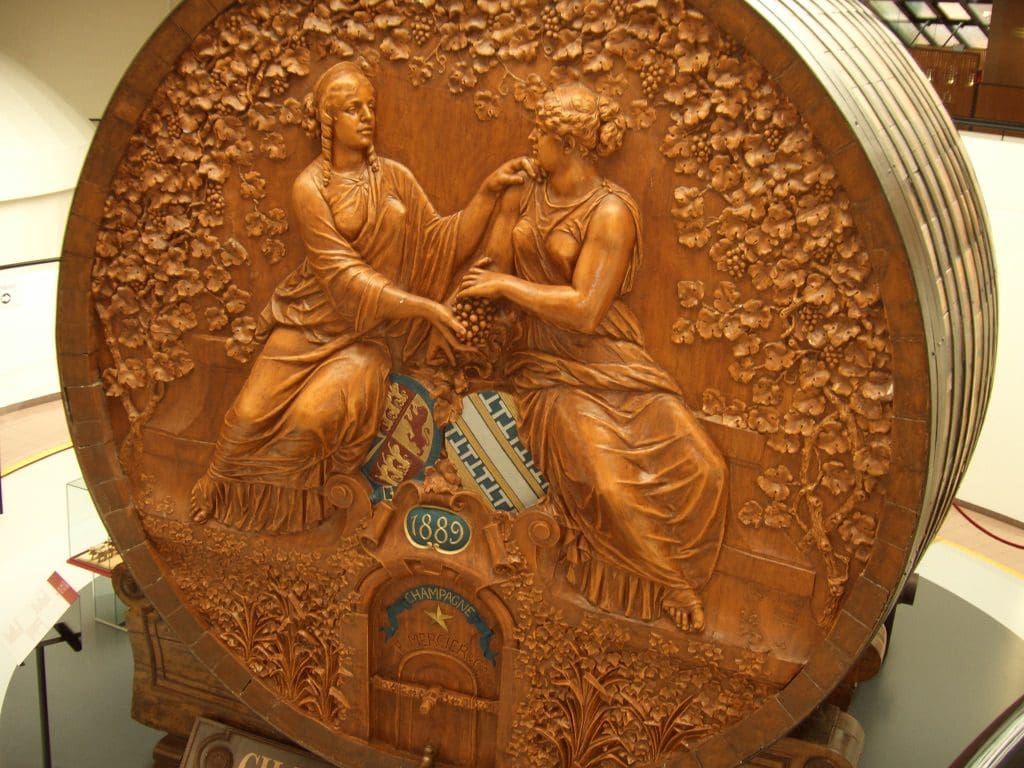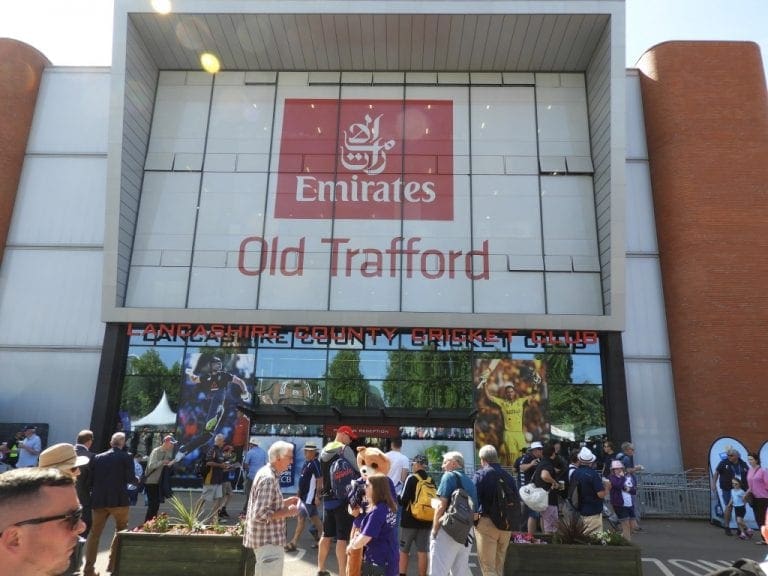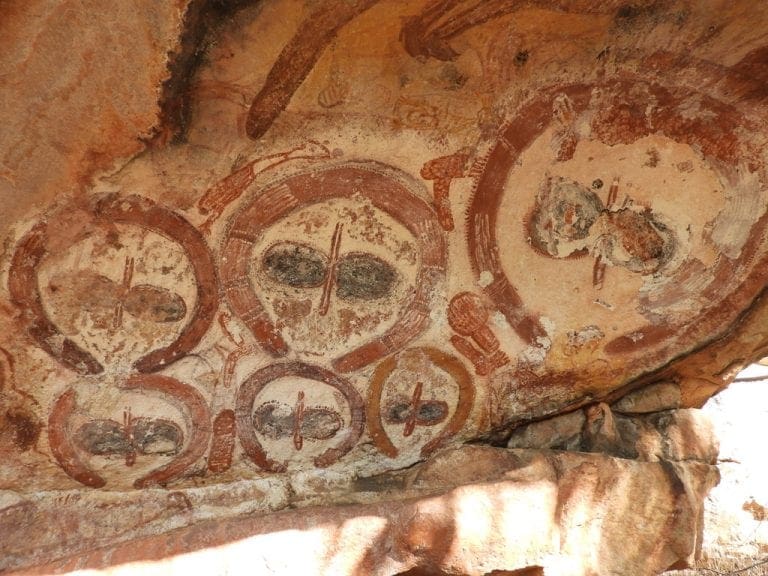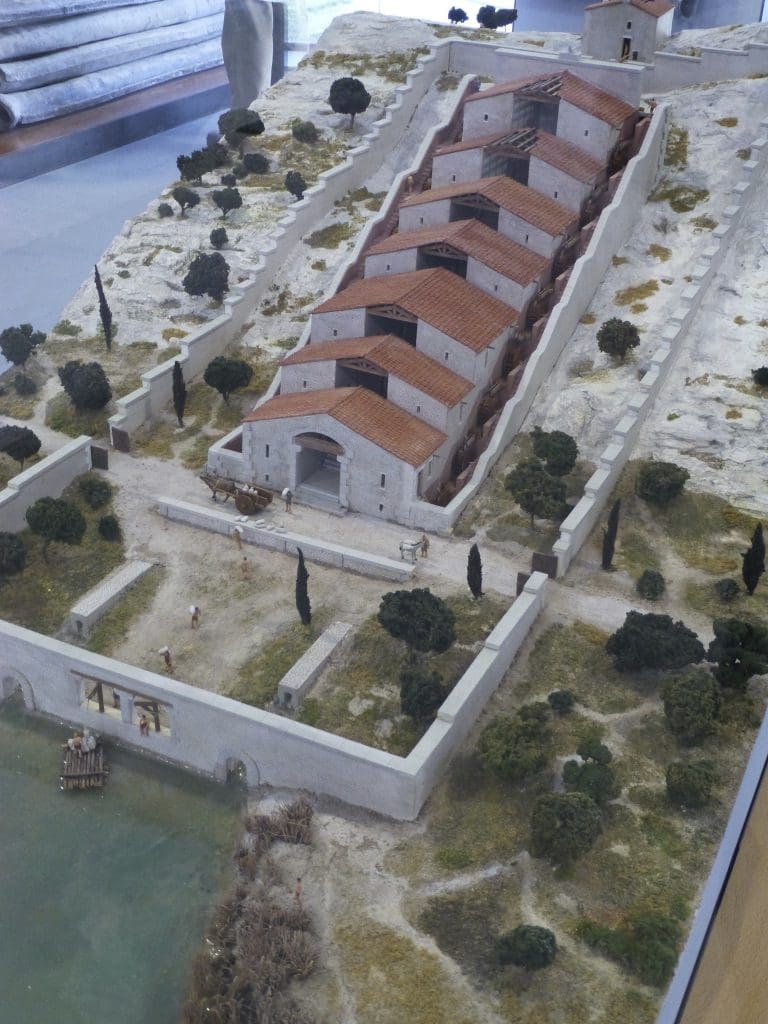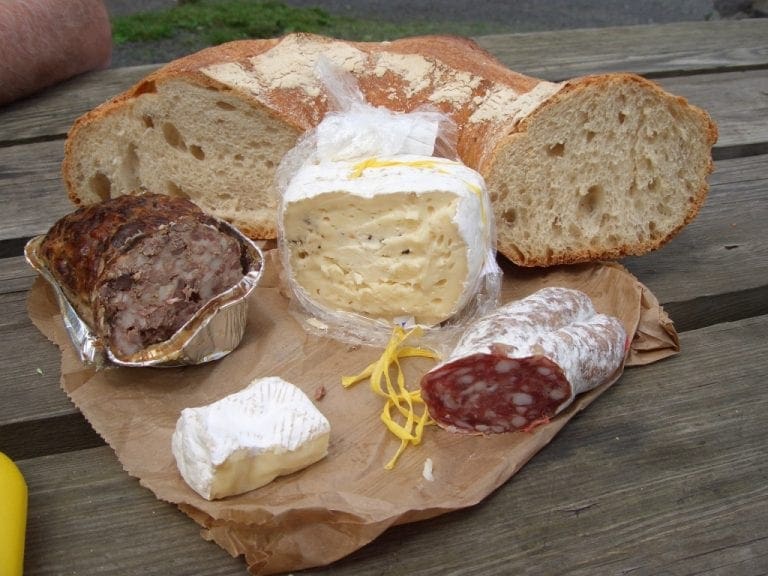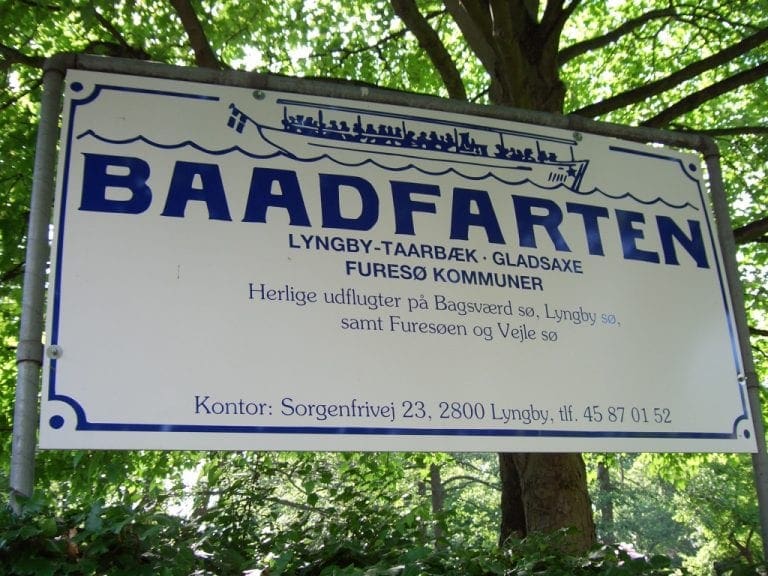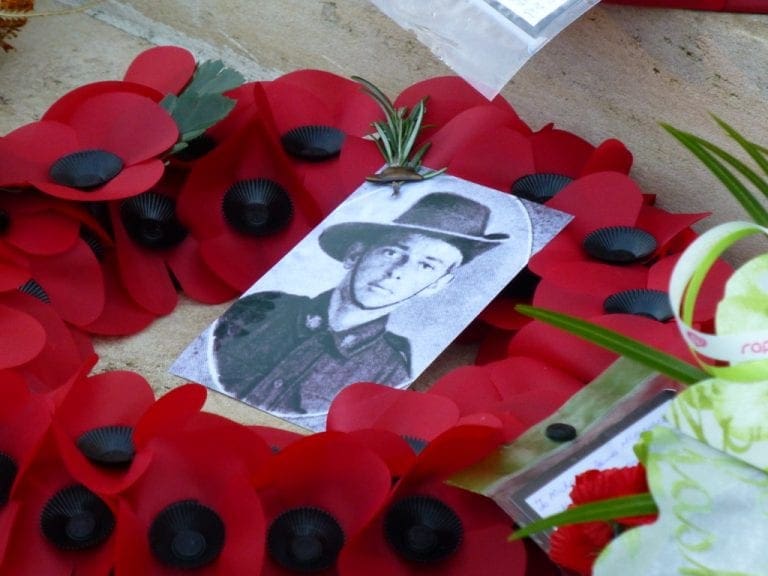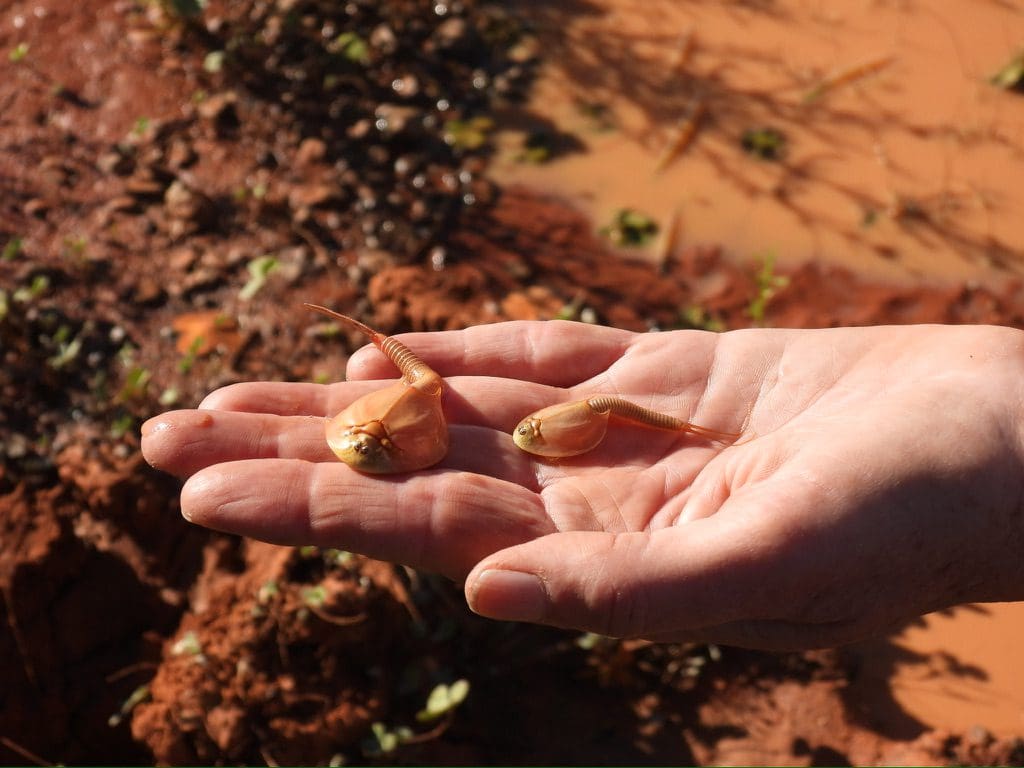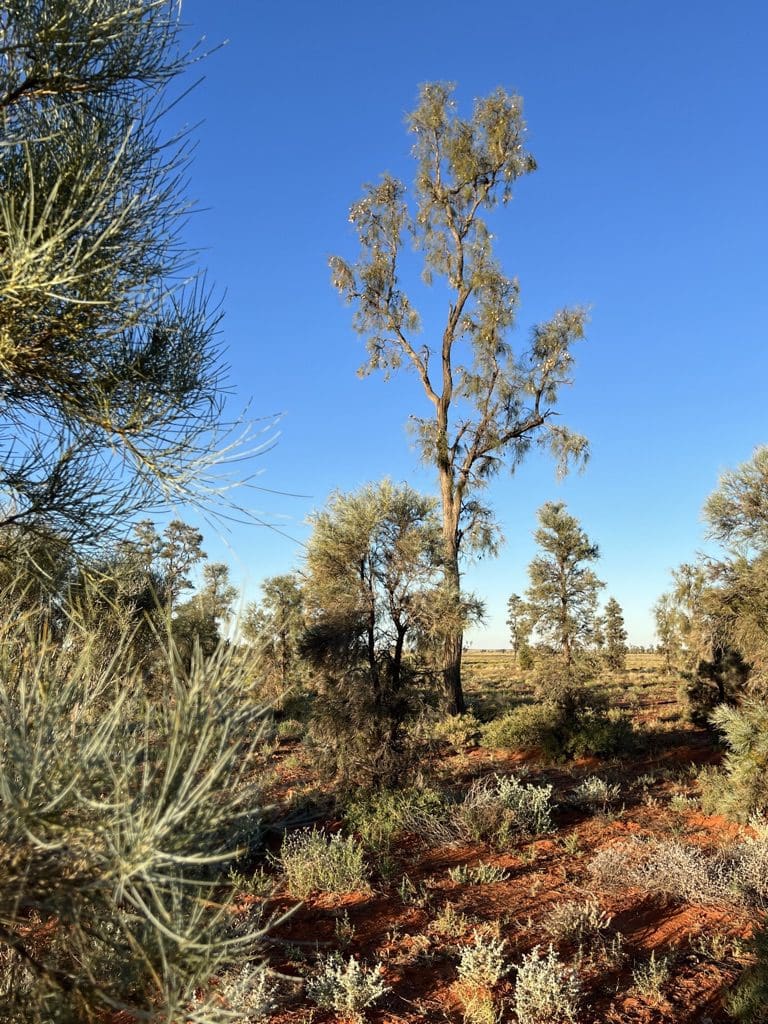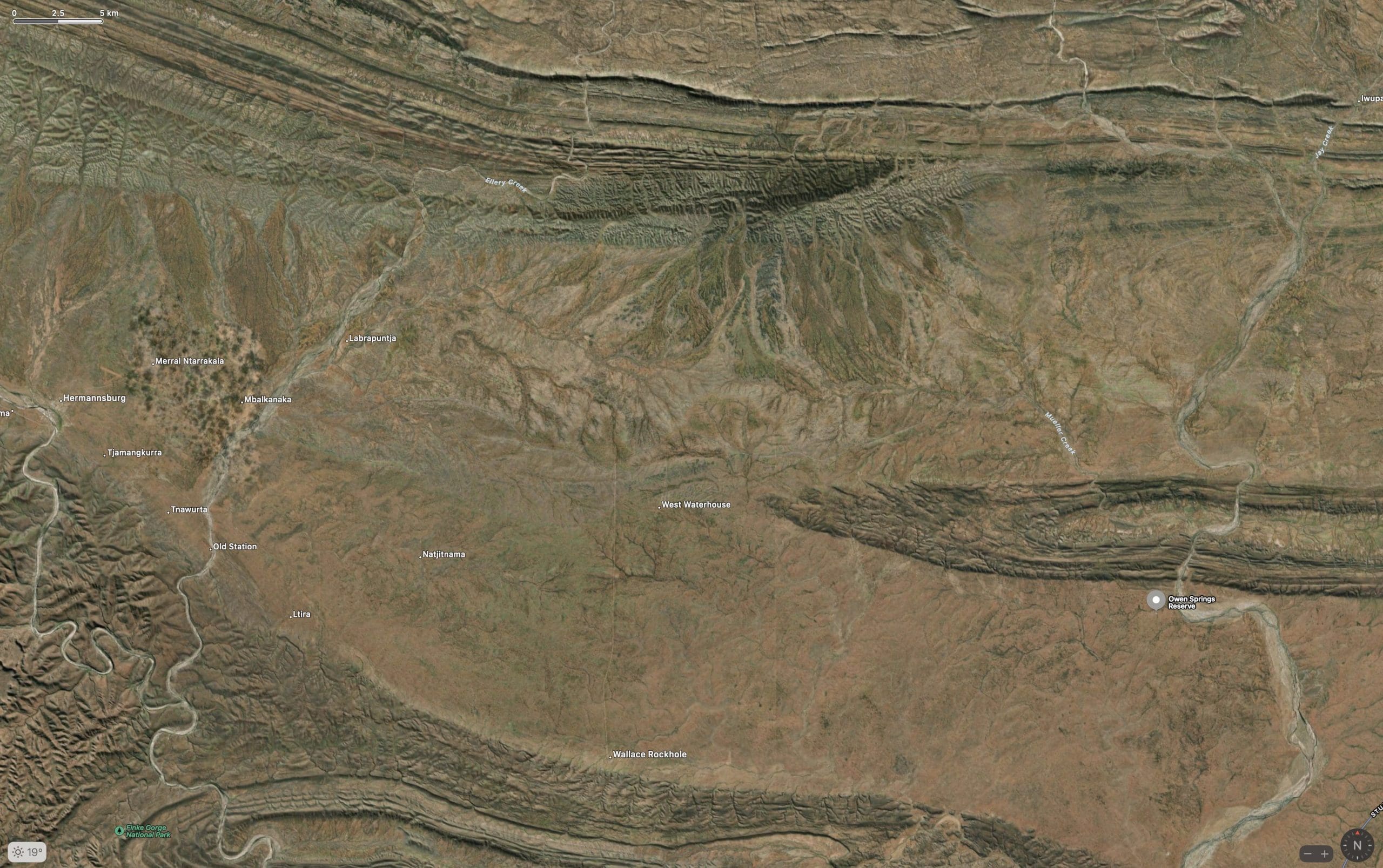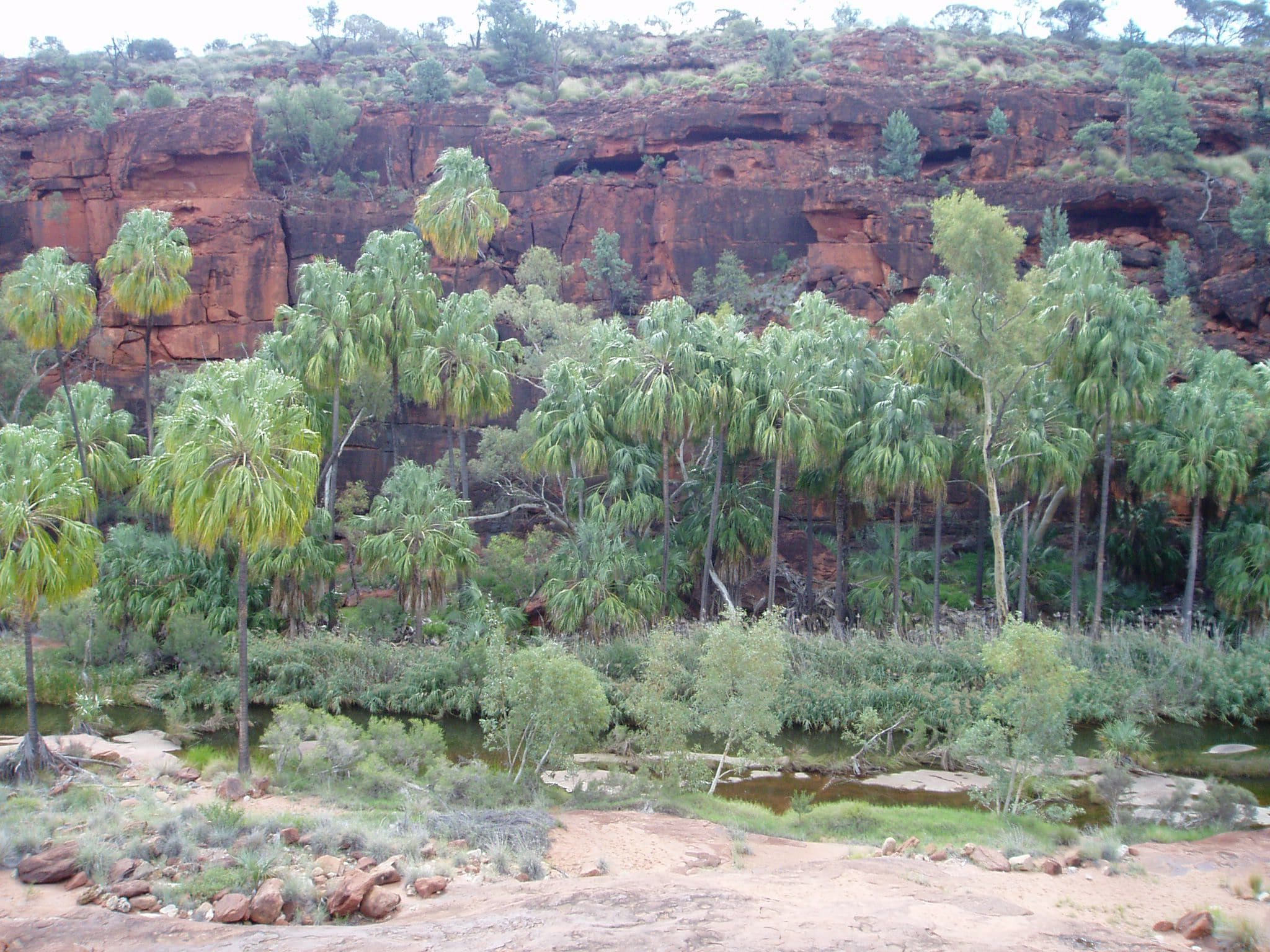Alsace, Ballons, Verdun, Champange
16/7 A day off and preparation for leaving France – we have only 14 sleeps to go. We went through the material collected and threw big chunks out. We have to get back down to 20kg each plus hand luggage and what we wear. The car, tent, chairs, table, cooking gear, groceries will all be jettisoned over the next 14 days.
This is a very sleepy delightful village. Every thing shut from 12 noon till it struggles awake some time in the afternoon. The sawmill over the road is full of beeping trucks and mosquito-like buzzing as they deal with huge fir trees we saw yesterday. It is an extremely large sawmill that continued in full operation until at least 3am.
17/7 We tried to find where the tour of the Peugeot Citroen factory left from at Sochaux. We failed. We have been ringing their phone number for a couple of days. No overly inspiring with their organisation so far. We did visit the Peugeot museum. Peugeot began by making saw blades and then coffee grinders. They began on cars in 188?. Now at Sochaux alone they turn out 1,550 cars a day with a workforce of 14,500. We will probably not see that because we have no confidence of getting on the factory tour. Their arrangements are very haphazard. In a way, this points out the huge omissions in the Lonely Planet guide book. Heaps of stuff for backpackers and budget accommodation. Lots stuff on churches and walled cities (especially if Proust farted in it). But info on the local industry, or how the country works – forget it!
We moved on to a big campground at Wattwiller in Alsace which has passed backwards and forwards between France and Germany since 1500 – currently French, though with their own Germany-like dialect. The campground is on a steepish hill in a forest of oaks. Very shaded. We were greeted at the check in by an Alsatian dog. (Why would they be called German Shepherds when the come from France?). Watching bats in the twilight.
Geoff finished reading ‘Love in the time of Cholera’ – way too long and meandering and pointless dead-ends. If the translation from Spanish was good, why did this fellow win the Nobel prize?
18/7 A night of rain and Karaoke. The Karaoke went through to 10:30pm then stopped abruptly. The rain began about midnight and continued through till about 9am. Then, a clear sky and a beautiful sunny day. We did not do much except sit in the shade and read. We rang Paris and confirmed our accommodation there and began to work out how to return the car. Made a real attempt to use the internet at the campsite. Failed. It is now well over two weeks since we able to connect to send and receive mail. We think that most of France is connected to the Internet by cable. There is very little wifi. We have seen almost no Internet Cafés. A great frustration.
This was day 100 since we left Australia. We are certainly becoming very tired and find the need for more and more time sitting and reading and much less doing.
During the night, the Disco immediately above us in the campground began at 9:45pm and went through til about 3am. Unacceptable noise in a campground.
19/7 A long day. Shortly after breakfast the rain began in earnest. We headed off 1 hour north to Colmar where we had identified an Internet site. Closed. By now it was seriously pissing down. We hunted for a second Internet café, also closed. Traffic was horrendous. We parked to wait out the rain. Turned out we were parked opposite a third Internet café. 477 emails. Sent off two of these Reports. 5 euro. While Geoff was doing this, Helen went for a walk around the old city. There is a considerable Islamic influence here. We wonder about the inevitable clash of cultures – especially if the Islamists are conservative. Our first beggars, rude shop keepers and horn blowing. By then, it was 12:30pm and the weather had cleared so we began the days drive. As we had come north from Wattwiller we had driven through the southern part of the Alsace wine area. Vines on one side of the road, corn of the other. This wine area extends in a continuous band for 120km to the north. That is a lot of wine. The vines had all been pruned into short skinny things like espalier. Harvest in September – October. After we left Colmar, we drove through Munster to the Route des Cretes which weaves its way along ridges between round bare mountains (called ‘ballons’). This ‘route’ was used as a supply route for the French during WW I. At the southern end at le Vieil Armand is the site of a vicious battle between French and Germans for a patch of ground that was taken and retaken several times by each side as they fought for control of Alsace. 30,000 killed. There is a French war grave at the site. One of the few in France. No German graves. There were coach loads of Germans visiting the site however. This area was completely stripped of vegetation in WW I, which would explain why the oaks in the campground are all the same height of about 25 m. The rounded hills are called ‘ballons’, the one called ‘Le Grand Ballon’ attracts the most car traffic. However, the one at le Holneck had a huge number of walking tracks. And that was the outstanding thing about the day – the hundreds of people out walking on the walking trails and cars out for a drive. This was a Thursday. We might have expected the walkers on a weekend, but not mid-week. (It is the beginning of the French annual holiday season and the schools and unis are closed.)
Our uphill neighbours are friendly French on holidays from Cherbourg. He claims to be a revolutionary in love with Napoleon and thinks he was born in the wrong century. Our downhill neighbours are from Holland (he is actually from Bolivia). We had a drink and a chat.
We have begun to work out the numberplates of the cars: French 999 XX 99 (the last two digits are the number of the ‘administrative region’ of which there are 95); German XXX XX 999 (of which the XX represent the ‘city’, eg HH Hamburg); Belgium XXX 999 in red; Dutch XX XX 99 (yellow plate); Danish XX 99 999. In this part of the country, there are few Poms X X99 XXX, Spanish and Italians, but many Dutch and Germans. Each of the 95 French admin regions that we have seen appears quite remarkably different. We estimate that France is about a quarter as big as NSW. This is divided into Provinces and then into 95 regions. They have names and numbers. We are in 68 ‘Haut Rhin’. The plates of cars here end in 68. We first realised this when we were in 65 ‘Hautes Pyrenees’ and all the cars ended in 65. Our car has a bright red plate to warn people that we are mad strangers and the number ends in 75 for Paris.
A very noisy night. People screamed and honked horns all night. This is a 4 star campground. Rated such because it could put ticks in all the right boxes. Unfortunately, the reality is that the toilets were filthy, blocked or flooded. The showers were miniscule and dirty. The camp shop was usually shut. The noise level at night unacceptable. It was also the most expensive campground so far at 27 euro. The problem with the 4 star campgrounds is that they offer things we don’t want (like two swimming pools, tennis courts, petanque, kids playgrounds). They are trying to be little self-contained villages. Unfortunately, they fail at this – this one was terrible. We probably should not go higher than 3 stars.
20/7 We headed out to drive to Verdun. First, up to Colmar where we saw a flight of storks. These birds are famous in Alsace – the locals consider them lucky. From there, through vines for many kilometres until we climbed up over the Vosges into the Province of Lorraine (where all the quiche comes from) and a new region – Vosges. Change of countryside again, different houses and crops. Many more sunflowers. After we passed Nancy and crossed the Moselle, we came again to country that had been mainly made to mud in WW I. Almost no house here would be older than 90 years old. Churches are scarred with bullet holes. We drove for about 30 km along one ruined trench with shell holes all around the road. The last few kilometres into Verdun were along Sacred Way which was used to carry supplies to Verdun (mainly thousands of tons of munitions – they forgot the food and water).
We have pulled up in a hotel in Verdun – buggered. We had several very heavy storms with hail as we drove to here. The campground we were aiming at turned out to be closed and abandoned. Just as we were working out what to do, another storm struck. Demoralising us, so we had the Girl find a nearby hotel. At least we can see the Tour on the TV. We have just realised that this is the first TV since the Zleep hotel in Ballerup Kopenhaven (64 days ago). We watched Stage 12 Montpellier to Castres. The breakaway was caught just at the Flame Rouge (1 km to go) – as usual. The ‘domestiques’ doing a fantastic job to get the peleton up to the breakaway and then peeling off saying ‘that was my bit, now you do yours’. The analysis after the race went for 1 ½ hours. Day 102 and Geoff has changed the blade in his razor. 102 days out of a blade. Not bad considering the amount it has to shave each day.
This town of Vendun was completely destroyed in WWI. The memorial in town centre (where our car is parked) is on the site that the guns had exposed when all of the houses were obliterated.
21/7 Battle of Verdun Memorial. The Battle of Verdun was a battle of attrition that was the brainchild of German Chief-of-Staff Falkenhayn. He reasoned that the French would continue to throw troops in regardless of losses and this would ‘bleed France white’. Losses on both side were enormous. France lost 130,000 + killed but Germany lost 100,000 plus killed. (The actual number of killed and casualties is very political and different numbers are given in different documents depending on the point being made and by whom.) The battle began on 21 Feb 1916 with 2 million shells fired in 9 hours which caught he French by surprise. 70% of the French army passed through the grinding machine of Verdun and this later caused rebellion and demoralisation throughout the French army. This was extremely important in the strategy of the war as the allies were forced to ‘spend lives’ regardless of outcome in order to match the huge losses that France was taking. Falkenhayn eventually lost his job because of the huge German losses. What a strategy! To willingly cause that huge amount of suffering. What a fine fellow.
The hills that we drove along from Verdun to the Memorial, which is in the centre of the battle field, are still pockmarked with thousands of shellholes and some few remaining trenches. Just past the Memorial is the Trench of the bayonets where a column of French troops were buried alive by artillery fire while they waited in a trench with their bayonets fixed on 12 June 1916. They were found three years later when someone spotted their bayonets poking through the mud. They left them there. (The bayonets are now cemented in place to prevent theft.)
Verdun was never taken. The Germans got as far as Fleury which was taken and recaptured 16 times. By October 1916, the French had taken back all the lost ground – but they could not re-claim all the lost lives. What a waste. In the Memorial (which is very good), the very last exhibit is of the sportsmen who died. One fellow played rugby against NZ in 1916 and was killed in aerial combat in 1918. The fellow who won the Tour de France in 1910 was killed in 1918. What stupid waste.
We drove to Epernay to spend our last few nights in the tent where we began – drove past villages we recognised. Campground is a 2 star municipal campground which is very clean but full. With luck this will be the last time we have to put up the tent. The poles are almost completely stuffed. Two look as though they will break at any time. Lunch a cheese that Geoff thinks smells like duck shit and Helen cannot smell. Diner of scambled eggs and red wine.
22/7 Today was lunch – again. We went back to the Tibault IV at Vertus where we had an excellent lunch 48 days ago. Excellent again today. ‘You have been here before.’ Probably we were so memorable for our atrocious table manners. The aperitif was, again, Duvet-Leroy champagne. A bottle of white called Aligote which we have had before and like. Finished off with Armangac & Cavados and had to walk around the village looking at flowers till sober enough to drive back to the campground.
We had a bit of a cleanout in preparation for departure. The fencing wire has been ditched and most bottles in the grocery box. The tent will go in the bin. We think it is stuffed – the poles have taken on bends where they shouldn’t be. Fortunately we are in a sheltered camp site for the last few nights. Not very good for only about 60 nights.
A few notes on France. We like it. Supermarkets have about as much space allocated to chocolate as they do dog food – and that is a lot. A country of chocoholics. The French cannot pass someone without greeting them – bon jour, bon soir and if eating bon appertite. Even tollbooth people say hello, thank you, good bye and good all day (bon journee). In the campground where all the French are Bon Jour-ing everyone, the Poms put their head down and hope it is not catching. Visa cards with smart chips in them are almost universal. The old style that we have are accepted in France – just. They will probably be phased out in a couple more years. The bird calls have almost ceased. A Dane told us that the birds stopped calling at 23 June. We hear almost none now. We have discovered that we like very much being outside – provided it is not raining. ½ bottles of wine are very common in restaurants. It is uncivilised for two people to drink a whole bottle at lunch. ½ bottles are about ½ the price of a full bottle. What a good idea. The French have many different types of potatoes packaged for different uses: frying for frites (chips), frying in slices, for soaking up cheese, cooking in stews. Most supermarkets have at least 5 different types.
Cheese. Anti-clockwise from NW corner. Normandy is the home of almost all brie and camembert. The Auvergne had excellent cheeses with evil smelling soft edible outers (St Nectaire). The Pyrenees have excellent Cheve (goats cheese). The area around Millau had excellent blue (Roquefort). Province has excellent cheve. The Alps has excellent melting cheeses (fondue and raclette). We did not like the cooked chese of the Jura (Comte).
Salt. The French use a lot of salt to bring out flavour. Their cheeses are often very salty. Often sea-salt which appears to have more flavour. Their bacon is cut thick, is salty, and a lot less fatty than ours. Lots of different types. Some of the crue hams are very strongly flavoured. Nougat – yumm.
Helen – another day seems to have gone past in a blur of food and drink. Talking to a Pommie couple while washing up last night – their son is marrying an Aussi – so they were keen to make contact to see if the natives were friendly. We decided that we sound like an alcoholic gastronome while in France. They have a complete tourist industry, local and international, built around regional food and drink. I have vivid memories of an artisinal charcutiere in a very small village in the Jura. The window and ceiling of his shop was hanging with an assortment of dried hams and sausages. His specialty was a ‘melon’ – a type of salami in a round shape like a melon. This village was well away from anywhere, yet in his window he was offering to package and send these ‘melon’ to anywhere in Europe and had the postage and packaging price list. I have no doubt that he did very well from it.
23/7 A day of rain. We do not do too well in the rain. We went on the Mercier Champagne tour. Mercier is the second largest selling champagne in France. Most of its production is consumed in France. It was begun in 1858 by a very advertising conscious fellow who wanted to ‘bring champagne to the masses’. He tried all kinds of advertising tricks – huge 20,000 litre barrel taken to Paris by road (needed to buy and knock down houses along the way so the barrel would fit along the narrow roads), balloon rides over Paris, advertising films, car races. The tour was on a little electric laser-guided train that ran to a very strict timetable. Very showy. The champagne was much more brut than the Moet and much more like the sparkling chardonnay of Oz. Cheese and bread for lunch and a melon for tea.
24/7 It rained all night and it was too much for us. One night OK, two days not. We have moved to a hotel. As soon as we had decided to do that, and thrown the tent and air-mattresses in the bin, the sky cleared and we had a sunny day with huge storms moving around the country-side. Half an hour from pouring rain to needing a hat. The manager of the campground said it is raining everywhere in France except Provence. The campground that was so full a couple of days ago is now almost empty. (As well as the tent and air-mattresses, we threw out the tarp/ground sheets. These were spotted and immediately rescued by the campground staff.) A news item on TV is saying that numbers are down by at least 10% in most holiday destinations this year – probably because of the weather.
We spent 53 nights in that tent and it was stuffed. A poor design – Outwell Arizona by a Danish company. Dry enough, did not leak. However, the poles had gone and it was a danger to put up. The shape of the door at the front actually let rain inside and was poorly thought out. A big plastic window at the front (clearly designed for dismal Danish days) was useless and did not ever dry properly. Waste of space.
For lunch we headed down to Sezanne to try the Turkish plat du jour that we had enjoyed 7 weeks ago. We have fetched up in the Tibault IV Hotel at Vertus where we ate two days ago. We were going to come here tomorrow anyway (if the weather was not good for packing). We’ve rung the car place in Paris, as instructed, to let them know time and day of returning the car.
The hotel has an Internet connection that runs through the electricity plug. Never seen one of these before although we had heard of them. It looks to run at about the same speed as cable.
In answer to question about the GPS. The girl is set for ‘fastest’. I checked that immediately the first day she headed us down a farm road. The problem is that she classes all roads with a sealed surface the same regardless of whether it is a major road or a track. All she does is look at length of road and speed limit. A track has a 100 km speed limit just as does a major road. That is not too bad in the flat country like Champagne. But in the mountains it causes difficulties. She will calculate that taking the short side of an isosceles triangle (the winding track with five hundred hairpin bends) will be 10 seconds faster than driving the two long straight sides on major roads. That 10 second advantage does not withstand the slowness needed to drive hairpins in first gear at 10 km/h rather than tearing along the major road at 120 km/h. We have found that the navigator needs to keep a close eye on where she is taking us. Then we can decide. 95% of the time she is on the best road, and even the winding ones have been a delight.
The worst thing is her losing satellites in narrow streets with houses more than 2 stories high and under trees. This means that we have to pick out the place 20 ks away that she is aiming for and follow signs, because she will lose the satellites at the intersection. Sometimes we just stop in the middle of the road and wait for her to catch up. With the traffic stopped patiently behind us.
25/7 This was a day of packing. We have to get from a car full of junk down to two suitcases (that have a combined weight of less than 46kg) and two day-packs (that we can lift without apparent effort). Much stuff is being thrown out.
Some statistics. Very, very approximately, our average spend (excluding plane and car) has been very close to 100 euro per day. This is made up of accom (32), food (33), fuel (8), museums (9), tolls & parking (3), camping gear (part of accom? 4), souvenirs & books (8), other (3). Of the 112 nights we have been away, we have spent 53 camping, 27 in cabins, 17 in hostels, 12 in hotels, 2 on ferries, 1 staying with Dolores & Adam.
When we first arrived, we did not know what supermarkets were called in France. The two biggest are Champion (not a sparkplug) and E.Leclerc. Also Atac and Intermarche. We only found one Carrefour’s which is supposed to be a giant chain.
We had lunch at the hotel and for dinner bought a few apricots and a bottle of wine and drove up the hill next to Vertus to look out over the Champagne area. The hill we were on is covered in vines whose grapes are destined for champagne. At the base of the hill, the grain lands start and stretch as far as we could see. Silos about every 5 km. The whole area is crisscrossed by dead straight Roman roads. Rich country. We could not help notice the total absence of litter and the recently mown road verges. We have seen almost no litter in France.
Sounds like the Tour is in major damage control with drug allegations flying thick and fast. On the official Tour web-site there is a game to download – ProCycling Manager. The first question would be ‘have all your team members taken their drugs today’? Followed by ‘have you got down pat all the statements of denial, surprise and outrage that they would do such a thing’?
Got the headset out to make a skype call – to find that the microphone has been ripped off. One more thing into the bin.
